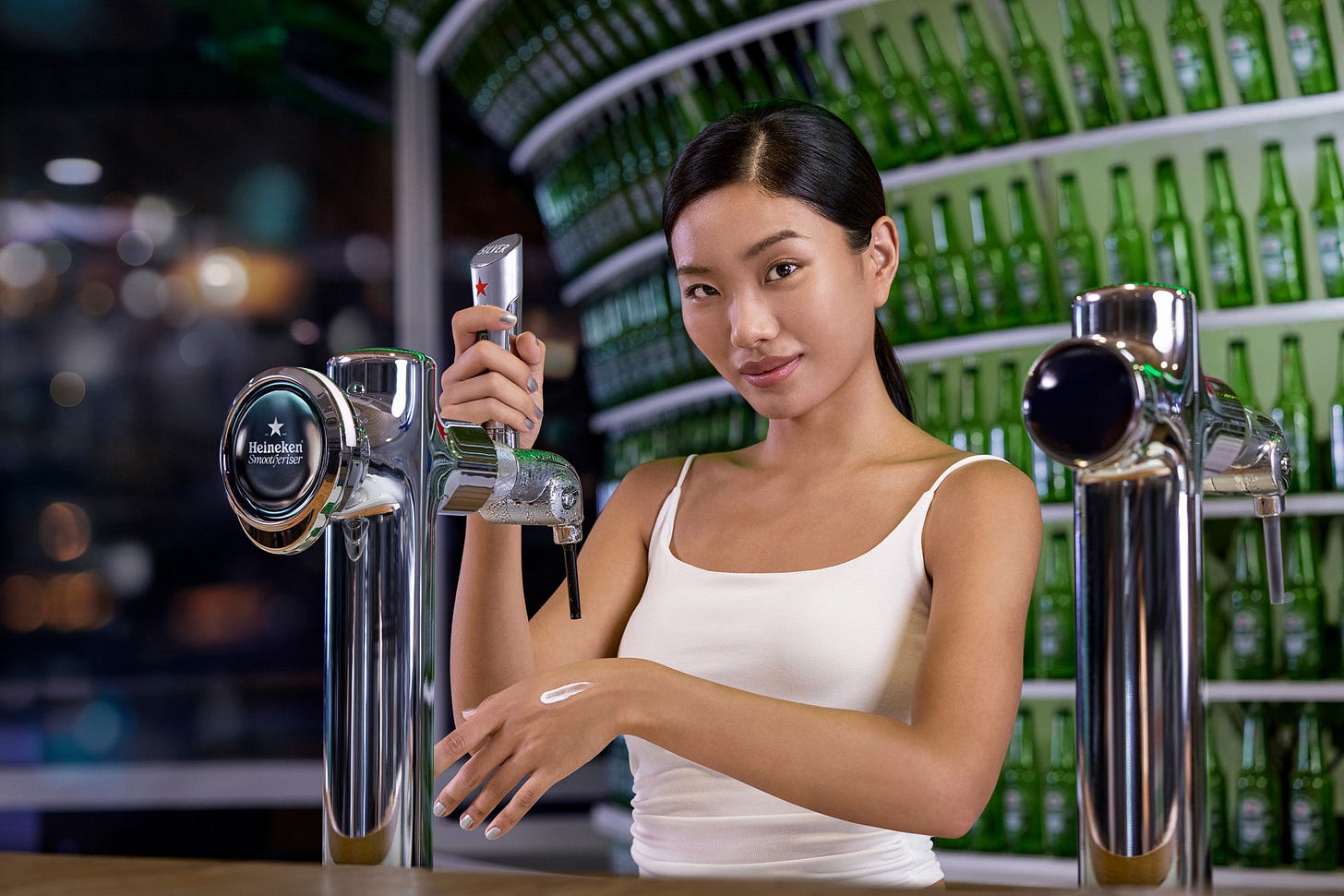The Broadmind Business & Innovation Tracker
How forward-thinking brands leverage sustainability, digital innovation, and cultural insights to deepen consumer connections and accelerate growth.
In this edition of PSFK’s Business and Innovation Tracker from Broadmind, we examine how leading brands are creatively adapting to evolving consumer behaviors and market conditions. From L'Oréal's successful pivot into social commerce and Reckitt's tech-driven campaigns addressing consumer health concerns, to Maker's Mark and Inditex advancing ambitious sustainability initiatives, these stories highlight the strategic role innovation plays in strengthening customer relationships and maintaining industry leadership.
Starting with beauty and consumer insights, L'Oréal executives have shared how they're finding big success with social commerce, especially through platforms like TikTok Shop. At a recent Kantar Ignite conference, they reported an impressive 19% boost in e-commerce revenue, thanks largely to their global strategy of blending shopping seamlessly into social experiences. Having seen initial wins in Asia, they're now bringing this approach worldwide.
At the same event, Reckitt, the company behind brands like Lysol and Durex, revealed they're using facial coding technology to tackle what's called the "gender pain gap"—highlighting women's health issues through genuine emotional storytelling. Their "Leave the Pain to Us" campaign is a great example of how brands can authentically engage audiences with tech-driven marketing.
Danone North America is adapting its marketing as more consumers use weight-loss medications like GLP-1 drugs. CMO Linda Bethea says people want high-protein, low-sugar products, which already make up 70% of Danone's offerings. They've grown Oikos yogurt sales 40% by leaning into protein-focused messaging and digital streaming ads instead of pricey TV spots, while using AI tools to speed up marketing.
Speaking of brands making moves toward sustainability, a badly AI-generated article in the Financial Times manages to describe how Brown-Forman’s Maker's Mark has just launched Star Hill Farm whisky, made entirely with regenerative farming practices. By ditching chemical-heavy methods for techniques like no-till farming, they're aiming not only to reduce environmental impact but also to create tastier whisky—a clever example of sustainability as an opportunity, not a limitation.
Inditex, the parent company of Zara, is taking big steps toward responsible fashion by sourcing nearly half its cotton organically—in just one year. Moving away from the Better Cotton certification, they now buy about 20% of the world's certified organic cotton, signaling real commitment to sustainability.
In his latest Tailwind Radar newsletter, brand expert Grant McCracken discusses Lululemon’s pursuit to stay culturally relevant. He points out how vital it is for brands to understand exactly where their customers' minds and hearts are headed—not just keeping pace, but shaping the conversation.
And turning to beer: Molson Coors Beverage Co’s Miller Lite is celebrating its 50th anniversary with a nostalgic ad campaign narrated by Christopher Walken. Featuring archival photos of iconic endorsers like Dick Butkus, John Madden, and modern stars like Luke Combs, the campaign thanks loyal fans who've made "Miller Time" an enduring tradition.
Finally, a surprising and unconventional launch from Heineken: for their ‘Silver’ brand they've created a limited-edition skincare cream called "The Smootheriser," using barley and hops—the same ingredients as their beer. Only available in Cambodia and Taiwan, it’s a humorous yet strategic way to tap into growing consumer interest in self-care, generating buzz and conversation around their brand. (and they say it’s not an April Fools joke!)








